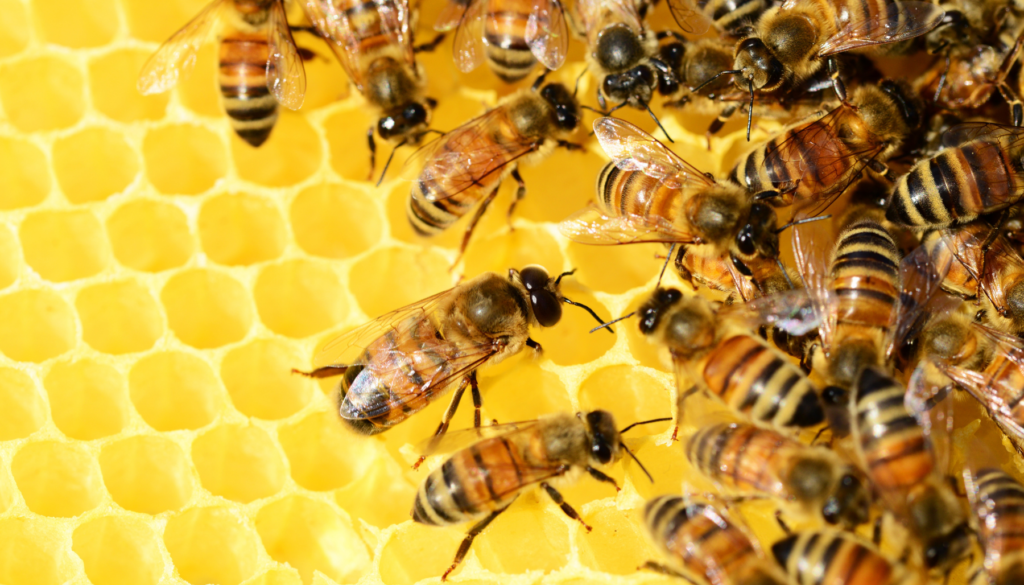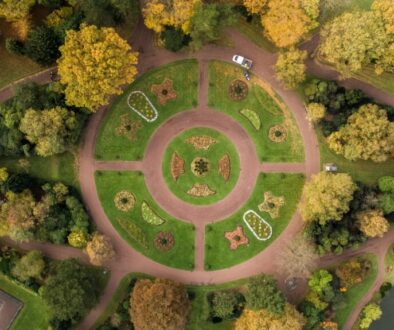More Than Honey: 5 foods we wouldn’t have without bees

Did you know that bees are responsible for pollinating one-third of the crops we eat? They are a critical part of the global food system, and their health is essential for our own diets. Bees play a vital role in the pollination of crops, and are responsible for the production of many fruits, vegetables, and nuts that we eat on a daily basis. Without bees, our diets would be incredibly limited. Sadly, bees are in decline all over the world. Their populations have been declining at an alarming rate, as a result of the use of pesticides, habitat loss, and climate change, and this is having a major impact on our food supply.
Bees play a vital role in the pollination of crops. Without bees, many fruits and vegetables would not be able to grow. In fact, it is estimated that bees contribute to the pollination of over $15 billion worth of crops each year! Unfortunately, bees are facing a number of challenges. One major challenge is the loss of habitat. As humans continue to develop land for agriculture and urbanization, bees are losing the places they need to live and forage for food.
Another challenge that bees face is pesticide exposure. Pesticides can kill bees or make them sick. When bee populations decline, it can have a ripple effect on the entire ecosystem. That’s because as pollinators, bees help to keep plants healthy and produce food for other animals.
The importance of bees in the global food system
Bees are a key part of the global food system, providing pollination services for crops around the world. In fact, it is estimated that bees contribute to the pollination of over 80% of the world’s flowering plants. without bees, many of these plants would not be able to produce fruits and vegetables.
Strawberries
Bees are often called the gardeners of the plant world, and for good reason. Their role in pollination is essential for the production of many fruits and vegetables, including strawberries. Without bees to transfer pollen from the male parts of the flower to the female parts, strawberry plants would be unable to produce seeds. Once the pollen has been transferred, it fertilizes the ovules, which develop into seeds. The seed-bearing fruit that we eat is simply the plant’s way of protecting and dispersing its offspring. Without bees, there would be no strawberries, so next time you eat a delicious strawberry, be sure to thank a bee!

Apples
Bees play an important role in the production of apples. During the blooming process, bees transfer pollen from the male reproductive organ, or stamen, of one flower to the female reproductive organ, or pistil, of another. This process is known as pollination, and it is essential for the fertilization of plants. Without pollination, plants cannot produce fruits or seeds. In addition to transferring pollen, bees also collect nectar from apple flowers. This nectar is used to make honey, which is a valuable food source for bees, and for humans too. Not only is honey a natural sweetener that can be used in a variety of foods and beverages, but it is also thought to have medicinal properties, and has been used to treat everything from colds to wounds. In return for their services, bees help to ensure that apple trees produce a bountiful crop of fruit.

Blueberries
Unlike apples, blueberry flowers are relatively small and lack nectar, so they don’t offer much in the way of reward for bees. However, bees are attracted to the flowers by their blue color, which is a sign that they contain a high level of pollen. When a bee lands on a flower, its weight causes the petals to open and the stamen to release pollen onto the bee’s body. As the bee moves from flower to flower, it transfers pollen between them, fertilizing the flowers and allowing them to produce berries. In this way, bees play an essential role in the life cycle of blueberries, and we can all enjoy their sweet flavor thanks to these hardworking insects.

Almonds
Bees are one of the most important pollinators of almond trees. Without bee pollination, almonds would not be able to grow. Each bee collects pollen from the male flowers on the almond tree and transports it to the female flowers. This process of pollination results in the fertilization of the ovules in the female flowers, which eventually become almonds. In addition to bees, other insects such as wasps, flies, and beetles also help pollinate almond trees. However, bees are by far the most efficient pollinators and are responsible for the majority of almond production.

Onions
Bees play an important role in the production of onions. They help to pollinate the onion flowers, which leads to the formation of fruits. Each fruit contains a seed, and it is the pollination process that ensures that the seeds are properly formed. without bees, the quality of the onions would be greatly reduced. In addition to providing pollination services, bees also help to control pests that can damage onions. For example, bees will feed on aphids, which are a common pest of onion plants. By controlling these pests, bees help to keep onion crops healthy and productive.

Side note: anyone else only just learning that onions have flowers? 
The economic impact of the declining bee population
Though they are small, bees play a big role in our economy. It is estimated that bees contribute to the pollination of over $15 billion worth of crops each year.
As pollinators, their decline can have a major impact on our economy. When there aren’t enough bees pollinating crops, their decline has led to a decrease in crop yields. This, in turn, has led to higher food prices across the food system, and reduced incomes for farmers, as farmers may need to rely on hand pollination, which is a costly and labor-intensive process.
The decline in bee populations has also had an indirect impact on the economy by reducing the availability of honey and other products made from beeswax. This has led to job losses in the beekeeping industry and reduced tax revenues for governments.
Ways to support bee populations in your community
So what can we do to help bees? One thing we can do is plant native flowers and create habitat for them by planting bee-friendly plants, avoiding the use of pesticides, and raising awareness about the importance of bees. By doing our part, we can ensure that these important pollinators thrive for years to come.
Do you have a bee-friendly garden? Looking for some simple ways to catalyse change for bees? Check out these creative ways to celebrate bees from our partners at Changemaker Co.
The post More Than Honey: 5 foods we wouldn’t have without bees appeared first on Fixing Food.




